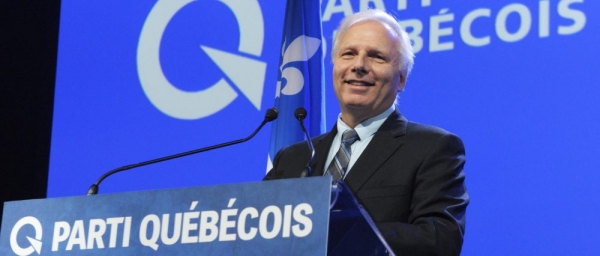Valérie Plante, Montréal’s new mayor, has openly supported providing services to citizens in the language that they are most comfortable with, be that English or French. Plante recently proposed promoting bilingualism in the Société de Transport de Montréal (STM) by providing emergency messages in multiple languages.
However, the current provincial government continues to resist bilingualism. Most recently, Québec lawmakers passed a unanimous motion that calls on businesses to scrap the beloved, “Bonjour-Hi!” and replace it with simply, “Bonjour.” Although this motion carries no legal weight, it demonstrates the rigid campaign to defend the French language that parties such as the Parti Québecois (PQ) continue to pursue. In the motion’s original wording, the PQ went so far as to call the bilingual greeting an “irritant.” PQ Leader Jean-François Lisée promised that, if elected in 2018, there will be a “French language crackdown,” through measures such as creating more language restrictions in the workplace. Where Lisée is wrong is that instead of being seen as an “irritant,” multilingualism is one of the many gifts of a multicultural society and an asset to the province as a whole. The provincial government should see the value in Plante’s ambitions to make Montréal, and Québec as a whole, more inclusive for anglophones and other language minorities.
Montréal is Québec’s largest city. Beyond that, it is a global hub, home to groundbreaking artificial intelligence research, and attracting international attention. Tourists, students, and immigrants come from all over the world, and many do not speak a word of French when they arrive. The 2016 Census found that the number of anglophones in Québec increased by 45,230 from 2011, with over 1.1 million native English speakers—9.6 per cent of the total provincial population—now calling Québec home. In Montréal, the English-speaking population is significantly higher: Only 54 per cent of Montréal households cite French as their primary language. It is becoming more and more evident that Quebecers speak English, too. Eventually, the government will have to stop fighting this reality. Although Québec has a thriving francophone culture, it is not only unsustainable to continue to ignore the province’s language minorities—it disregards the value of multiculturalism as a whole.
Economically, shunning English and other languages is unsustainable, especially if Montréal wants to see growth in the future. Most international business is conducted in languages other than French, such as English. Bilingual workplaces are rising in Québec, and for the rest of Canada, nine out of 10 employees work exclusively in English. In the 1960s, Montréal was booming and on its way to becoming the business capital of Canada. However, increasing regulations and political tensions due to language and sovereignty drove private investment, and some of the most wealthy and educated people out of the province to cities like Toronto. This phenomenon is not unique to Montréal: Between 1971 and 2015, more Quebecers left the province than settled in. By cracking down on English again, Québec is doing a disservice to its own citizens and businesses, effectively sabotaging their means to work or operate throughout Canada and internationally.
Furthermore, the narrative that francophone-focused groups routinely ignore is that of Indigenous languages in Montréal. While Québec’s history has been filled with oppression, forced assimilation, and colonialism, it is unfair to position francophones as the only victims. Indigenous populations have experienced cultural genocide at the hands of the government through oppressive policies like the residential school system. According to the 2016 Census, between 2006 and 2016, Québec saw a 37.5 per cent increase in people identifying as First Nations and a 149.2 per cent increase in people identifying as Métis. In 2011, 20.9 per cent of Canada’s 213,490 total Aboriginal mother tongue population lived in Québec.
The promotion of multiple languages should not be seen as an attack on francophone culture, but as a gift of multiculturalism. In a province where many languages are represented, it is irrational to restrict citizens to using just one, even if it has a strong historical tradition. Quebecers do not say “Bonjour-Hi” to attack Francophones—they say “Bonjour-Hi” to include those whose mother tongue is not French. If anything, Quebecers should add more languages to the greeting, and embrace the multicultural direction that the world is headed in, not actively resist it.









